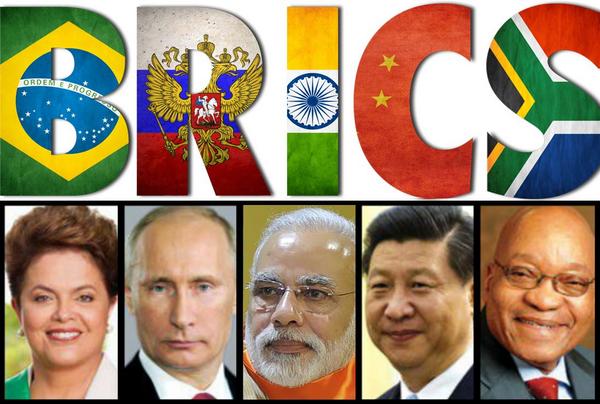12
Oct
Recently there have been two articles assessing the BRICS’ utility in global politics and international governance structures.
The first published on Project Syndicate by Ana Palacia, former Spanish foreign minister, was entitled BRICS fallacy. The main focus of the argument is that the BRICS will not be able to provide global leadership simply because the US’s “enduring dominance” cannot be replaced by alternative power blocs. In recognising that the “international order is at a crossroads”, Ms Palacia stresses the importance of the US in the international system, which she hopes “would help to spur the US to rededicate itself to its international responsibilities” This is because “the BRICS remains a thing” but just not “the thing” to offer global leadership.
The second article, called BRICS in Danger of Collapsing as members fail to cohere, was published in the South African daily newspaper, The Business Day. The authors, Daniel and Virk, highlight economic disparities between the five countries as well as their inconsistencies when it comes to global governance frameworks in areas such as the Responsibility to Protect.. The authors conclude that the “different priorities and expectations of the [BRICS] could weaken their collective endeavor of creating a democratic and equitable world order.”
Both commentaries are indicative of the growing obsession with the BRICS. But this preoccupation with the BRICS also speaks to the fact that the continuous critical reaction to the BRICS is suggestive of the fact that the BRICS is seen as something more of a concern to be dealt with.
This is where the fascination with the BRICS needs to be contexualised in global realities.
In the current global landscape, the challenge to the legitimacy of the BRICS is valid given the nature of an evolving multipolar world where there are various centres of political and economic power.
Yet the BRICS is only one configuration in an emerging global multipolar system, wherein economics is not the only predominate focus.
A more compelling question is where did the notion emerge that the BRICS is suppose to represent a challenge to American domination or for that matter step into a leadership contest with the US?
Undoubtedly the BRICS are facing economic challenges, but in no way does this spell doom for multipolarism or the need to reinforce a unipolar world.
Like all states that are rising there will be inherent difficulties to manage and one such area is the issue of political and economic stabilization and maturity. This is what the West also experienced in it morphed into a global centre of power.
Is this is what is happening to the BRICS? Or are they in a complete meltdown? It is too soon to start with doomsayers’ arguments.
Why? Well because as much as the decline of the BRICS is about internal dynamics it will also have global economic repercussions and reverberations since we live in an interdependent international system.
Second, the case for multipolarism is not only a case for the BRICS but also that of MINT, MIKTA, IBSA, CIVETS, N-11. This is pretty much a cluster of Asian, Latin American and African economies, which are undoubtedly aspiring in the same way as the BRICS have and can also be identified as potential contenders for the global leadership title. If it is BRICS today, then tomorrow who will it be? And will we see similar arguments be made as in the case of the BRICS?
Third, one cannot disaggregate absolute factors – in this case the economic performance of the BRICS – to make a geopolitical regression model that will determine the future of global governance with certainty. This is because at the end of the day interdependence underpins almost all global transactions. So where once it was argued that when the ‘US sneezes the whole can catch a cold”, today the cold is transmitted from an orchestra of different sneezes.
After all is said and done, at best, we can only make clever guesses about the future of the BRICS, and perhaps a little more certain claims about the immediate place of the US in global governance. But in no way are we to discount the existence and the continued formation of multiple power nodes in the current geopolitical arena.
Perhaps what is needed is to understand how fragmented the international system has become.
Naidu and Rwigi are manager and officer of Fahamu’s Emerging Powers in Africa Project. The views expressed are in their personal capacity.
